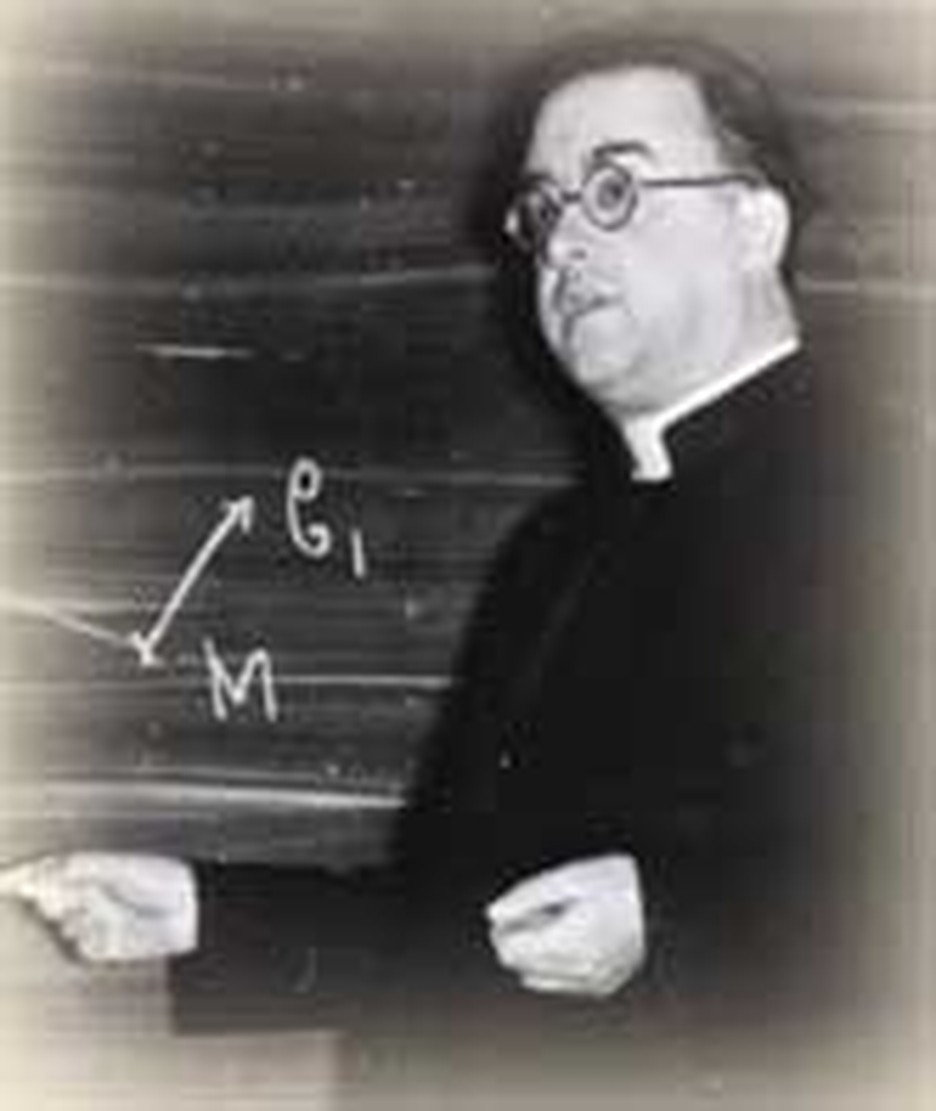
One day in the middle of his career, Georges Lemaitre paused in a lecture. A loud voice had interrupted his flow of words. "Very beautiful, very beautiful indeed," cried a man from the audience. Lemaitre knew that voice. So did everyone else in the room; indeed, so did millions around the world. It was Albert Einstein. He had just atoned for snubbing Lemaitre's "firecracker" creation theory earlier.
Lemaitre was a Belgian Jesuit. He was perhaps the first man to show scientific and mathematical proof that the universe had a distinct beginning. Throughout human history, the majority of mankind have either believed that the universe was created out of existing stuff or that it always existed. Einstein himself did not want to believe that the universe was expanding. When someone pointed out that this is what his equations showed, he added a term that would keep the universe from growing.
The Belgian priest wasn't buying it. He saw problems with Einstein's thinking. If the universe is running down, as the second law of thermodynamics states, then it must be finite. There has to be a time when its state of decay was lower than now. Thinking backward through space and time, Lemaitre realized that the universe had expanded from an earlier state. Indeed, Lemaitre electrified the world by coining the term "the expanding universe." His equations were ignored at first, because they were printed in a journal that few people read.
But Lemaitre's ideas could be tested. He thought cosmic rays were evidence for it, but physics quickly debunked that. Lemaitre's theory was like a rough draft. Nonetheless, his math was so persuasive that the biggest name in astronomy, Sir Arthur Eddington, championed it. Others reworked the priest's equations and the Big Bang theory was born. (Astronomer Fred Hoyle, who wanted to believe in an eternal universe, gave it that name in mockery, but it stuck.)
Scientists now agree with the Bible that the universe had a distinct beginning and will have an end. They have shown that literally dozens of conditions in the early universe had to be exactly right for the universe to support life. This led some astronomers to see the hand of God at work.
As odd as it may sound, Lemaitre was upset when Pope Pius XII endorsed his theory. He felt that approval from the pope would make his science less acceptible to skeptics. Still, Lemaitre had recognized the religious implications of his theory all along. In an unpublished paper written in 1922, he wrote that he believed that the universe had begun in light "as Genesis suggested it." (His scientific theory was not published until nine years later.)
Lemaitre rose through the ranks of his church, published theological works, and served as president of the Pontifical Academy of Sciences in Rome. He earned the first Arthur Stanley Eddington Medal and numerous other honors and prizes. As he lay dying, he rejoiced to hear that background radiation had been discovered. This confirmed the basic idea behind his theory.
Georges Lemaitre died on June 20, 1966. He was 71. His ideas forever altered astronomy. He had helped science catch up with Scripture.
Resources:
- Big Bang and Georges Lemaître, the: proceedings of a symposium in honour of G. Lemaître fifty years after his initiation of big-bang cosmology, Louvainla-Neuve, Belgium, 10 - 13 October 1983; edited by A. Berger. Dordrecht; Boston: D. Reidel Pub. Co.; Hingham, Massachusetts, 1984.
- Dictionary of Scientific Biography. Editor Charles Coulston Gillispie. New York: Scribner's, 1970. Supplement.
- Graves, Daniel. Scientists of Faith. Grand Rapids, Michigan: Kregel, 1996.


